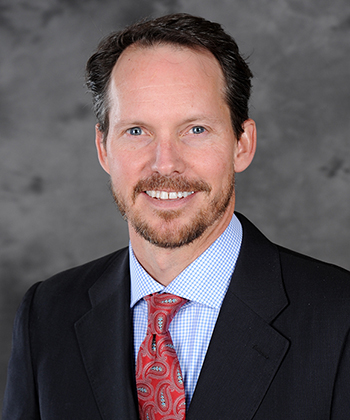Meet—and exceed—client expectations by utilizing a variety of tools and strategies to add value, rather than just working harder.
These days, wealth management clients are doing much more work today than they used to. Additionally, there’s a lot of price pressure, thanks to technology. The key for today’s advisors is to work smarter, rather than working harder—especially when providing value to high-net-worth clients.
“High-net-worth clients expect broader and deeper investment and wealth management advice,” says Devin Ekberg, CFA, CPWA, CIMA, and Chief Learning Officer and Managing Director of Content Development at the Investments & Wealth Institute. “It’s important to have the special knowledge and skills to serve these clients’ unique needs.”
As an advisor, it’s possible to meet—and exceed—client expectations by utilizing a variety of tools and strategies to add value rather than working harder. Here are some things to consider as you move forward in your wealth management practice.
Offer more holistic planning services
Recent research conducted by Absolute Engagement on behalf of the Investments & Wealth Institute indicates that the most important factors high net worth clients are looking for include:
- Meaningful guidance
- Exceptional service
- Demonstration of advanced capabilities
- Taking a personalized approach
Today’s clients aren’t just looking for an investment manager. They’re looking for someone who can look at the big picture and help them understand the implications of their decisions on various aspects of their finances, including taxes, estate planning, giving, and business planning.
“Advisors often enter the financial industry because of their interest in investment management,” says Ekberg. “But due to fee pressure and technology, it’s much harder to use that as their value proposition.”
The rise of technology and the downward price pressure on management fees as a result means that advisors need to be able to automate investment management to some degree and instead focus on the big-picture planning needs of their clients.
That client engagement is what will provide added value and encourage current clients to refer people to a practice, according to Julia Littlechild, the founder of Absolute Engagement.
Embrace technology
Part of working smarter is understanding when technology can help you. The research indicates that high net worth individuals rank investment management as one of the most important services offered by advisors.
However, to some degree, that investment management can be handled with the help of technology. Portfolio management technology can be integrated into a wealth management practice to take some of the workload off advisors.
In fact, thanks to technology and the reduction in fees as a result, investment management can be much more easily managed with the help of high-tech tools—leaving advisors free to focus on activities that add value.
According to Littlechild, the research indicates that the top things high net worth clients pay their advisors for include:
- On-going guidance as they work toward their goals
- Help avoiding costly financial and investment mistakes
- On-going monitoring of their goals
So, while clients expect advisors to provide investment management, what they’re actually paying for is holistic planning help. Integrating technology in your practice as an advisor can help you reduce the time you spend managing investments and instead focusing on the activities that high net worth clients say they pay their advisors for.
“High-net-worth clients have investment lives that are far more complex than average clients,” says Ekberg. “Being able to take extra time with them and let them feel heard is important. Using technology frees up some of that time and it takes the focus off low-cost investment management functions.”
Distinguish your expertise with certifications
Finally, you can work smarter by using continuing education to work on extra certifications that display your expertise.
The research from Absolute Engagement indicates that nearly 70% of high-net-worth clients believe in the importance of achieving advanced certifications. In fact, three-quarters of high net worth clients said that these types of certifications would play a large role in their choice of advisor.
Ekberg says certifications, like the CIMA and CPWA designations, can go a long way toward signaling to clients that you have advanced technical knowledge. Membership in an organization like the Investments & Wealth Institute can provide access to continuing education, including a CIMA certification. The ability to attend seminars, conferences, take on-demand webinar courses, and remain up-to-date can help you add value.
This extra knowledge allows you to meet the needs of high net worth clients, according to Ekberg. For example, CIMA certificants get extra training in tax planning so they can better educate clients about the short- and long-term tax consequences of their wealth planning strategies.
These designations indicate to clients that an advisor is serious about remaining up to speed with the latest industry changes as well as adhering to high ethical standards. For many high net worth clients, extra certifications set you apart as knowledgeable and competent—and worth more than just an investment management fee.
Bottom line
With technology and robo-advising changing investment management, fee pressure will continue to be a very real challenge for advisors. If all you do is focus on trying to work harder to offset the fee pressure, though, it will be harder to add value to clients.
Instead, it’s important to work smarter. Use technology to do some of the investment management heavy lifting—which is the low-fee part of the practice. Advisors that shift focus to holistic planning and show their expertise with the help of advanced certifications can prove that they’re worth more than just an investment management fee.
“By working smarter and focusing on the needs of high net worth clients, it’s possible to offset some of the price pressure created by technology,” says Ekberg.
#
Sean R. Walters, CAE, is Chief Executive Officer of the Investments & Wealth Institute.
Originally published by Wealthmanagement.com
https://www.wealthmanagement.com/high-net-worth/advisor-price-pressure-work-smarter-not-harder


